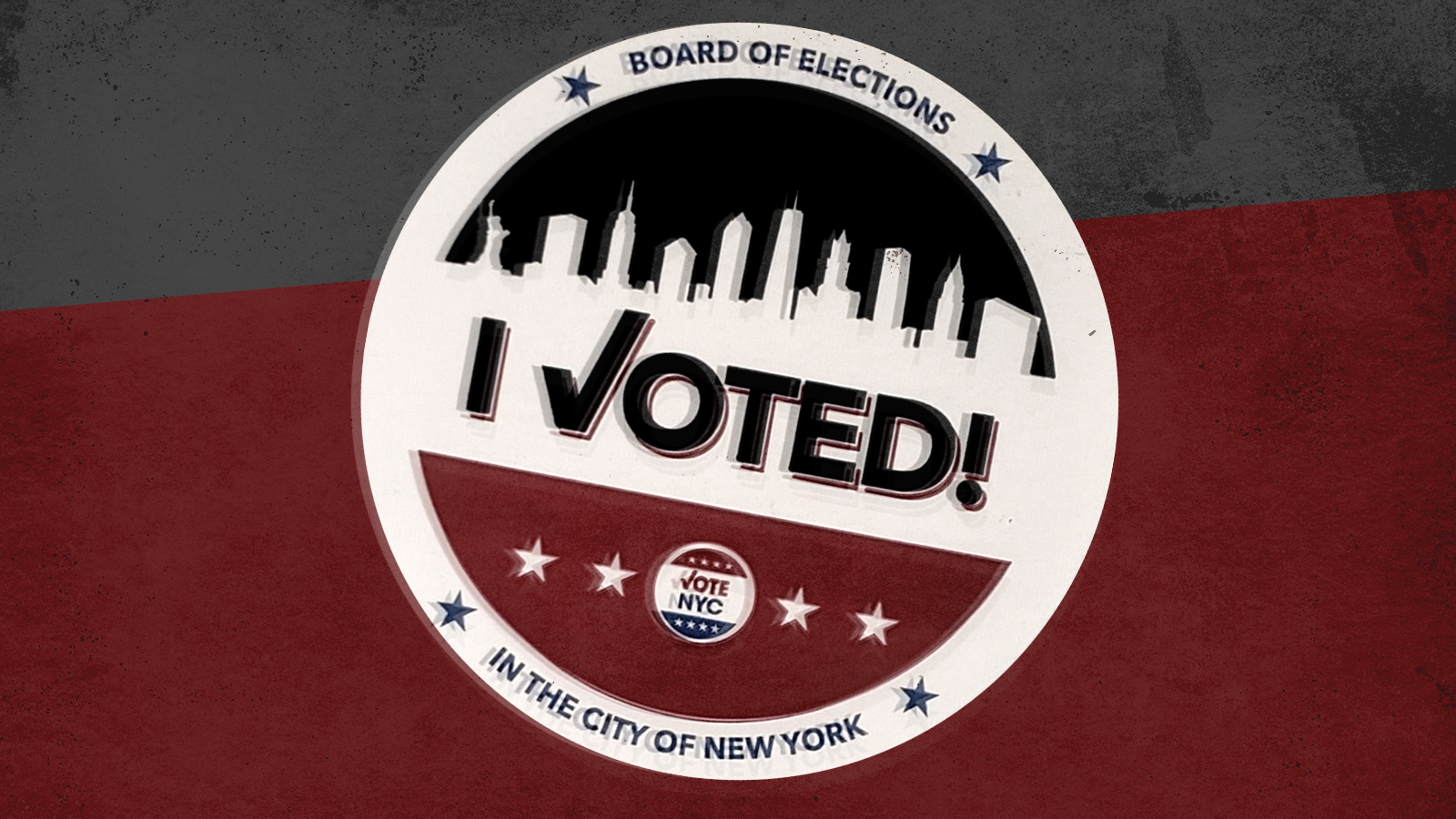NYC BOE shoots electoral reform in the face


A free daily email with the biggest news stories of the day – and the best features from TheWeek.com
You are now subscribed
Your newsletter sign-up was successful
The New York City Board of Elections released on Tuesday the preliminary results of ranked-choice voting, showing that, once second and subsequent choices were tallied, the race was much closer than it appeared on Election Day, with only two points separating front-runner Eric Adams and second-place Kathryn Garcia — and the possibility that absentee ballots could ultimately tip the race in Garcia's favor. This prompted a wealth of takes on the vagaries of ranked-choice voting, including by yours truly.
Now we learn that those analyses were based on garbage data. The results that the BOE released mixed the real ballots together with test votes used to validate the working of the software, rendering the results meaningless. The larger discussion of ranked-choice voting, the kinds of perverse results it can lead to and the hollowness of its promise to eliminate the need to vote strategically, remains valid. But the specifics of the NYC mayor's race are now unknown.
The BOE promises revised ranked-choice results later today, but the damage to their credibility has been done. The Adams campaign pointed out yesterday there was something fishy about the numbers, and was immediately criticized; now they've been vindicated. Voters inclined to doubt the integrity of the election are unlikely to be mollified by reassurances coming from the same folks who initially screwed up. Both the Garcia and the Adams campaigns should call for an independent audit of the results before they are announced, simply to demonstrate a joint interest in a result that is error-free.
The Week
Escape your echo chamber. Get the facts behind the news, plus analysis from multiple perspectives.

Sign up for The Week's Free Newsletters
From our morning news briefing to a weekly Good News Newsletter, get the best of The Week delivered directly to your inbox.
From our morning news briefing to a weekly Good News Newsletter, get the best of The Week delivered directly to your inbox.
But the collateral damage in political terms may be wider. There has been legitimate alarm about Republican moves in a number of states to give state legislatures greater control over the electoral process, with the biggest fear being that they might refuse to certify the results in a close race that went against their party, alleging fraud or other irregularities. The Georgia law, for example, allows the state legislature to take over a county's election management if they deem the county board negligent or malfeasant. By their manifest incompetence, the NYC BOE just shot the Democratic narrative on this issue square in the face — notwithstanding that their core fear about partisan interference remains entirely valid.
It is more clear than ever that we need electoral reform in America, and more clear than ever that it needs to proceed on a bipartisan basis if it is to have any credibility.
A free daily email with the biggest news stories of the day – and the best features from TheWeek.com
Noah Millman is a screenwriter and filmmaker, a political columnist and a critic. From 2012 through 2017 he was a senior editor and featured blogger at The American Conservative. His work has also appeared in The New York Times Book Review, Politico, USA Today, The New Republic, The Weekly Standard, Foreign Policy, Modern Age, First Things, and the Jewish Review of Books, among other publications. Noah lives in Brooklyn with his wife and son.
-
 What to know before filing your own taxes for the first time
What to know before filing your own taxes for the first timethe explainer Tackle this financial milestone with confidence
-
 The biggest box office flops of the 21st century
The biggest box office flops of the 21st centuryin depth Unnecessary remakes and turgid, expensive CGI-fests highlight this list of these most notorious box-office losers
-
 The 10 most infamous abductions in modern history
The 10 most infamous abductions in modern historyin depth The taking of Savannah Guthrie’s mother, Nancy, is the latest in a long string of high-profile kidnappings
-
 Big-time money squabbles: the conflict over California’s proposed billionaire tax
Big-time money squabbles: the conflict over California’s proposed billionaire taxTalking Points Californians worth more than $1.1 billion would pay a one-time 5% tax
-
 Did Alex Pretti’s killing open a GOP rift on guns?
Did Alex Pretti’s killing open a GOP rift on guns?Talking Points Second Amendment groups push back on the White House narrative
-
 Washington grapples with ICE’s growing footprint — and future
Washington grapples with ICE’s growing footprint — and futureTALKING POINTS The deadly provocations of federal officers in Minnesota have put ICE back in the national spotlight
-
 Trump’s Greenland ambitions push NATO to the edge
Trump’s Greenland ambitions push NATO to the edgeTalking Points The military alliance is facing its worst-ever crisis
-
 Why is Trump threatening defense firms?
Why is Trump threatening defense firms?Talking Points CEO pay and stock buybacks will be restricted
-
 The billionaires’ wealth tax: a catastrophe for California?
The billionaires’ wealth tax: a catastrophe for California?Talking Point Peter Thiel and Larry Page preparing to change state residency
-
 Trump considers giving Ukraine a security guarantee
Trump considers giving Ukraine a security guaranteeTalking Points Zelenskyy says it is a requirement for peace. Will Putin go along?
-
 Bari Weiss’ ‘60 Minutes’ scandal is about more than one report
Bari Weiss’ ‘60 Minutes’ scandal is about more than one reportIN THE SPOTLIGHT By blocking an approved segment on a controversial prison holding US deportees in El Salvador, the editor-in-chief of CBS News has become the main story
